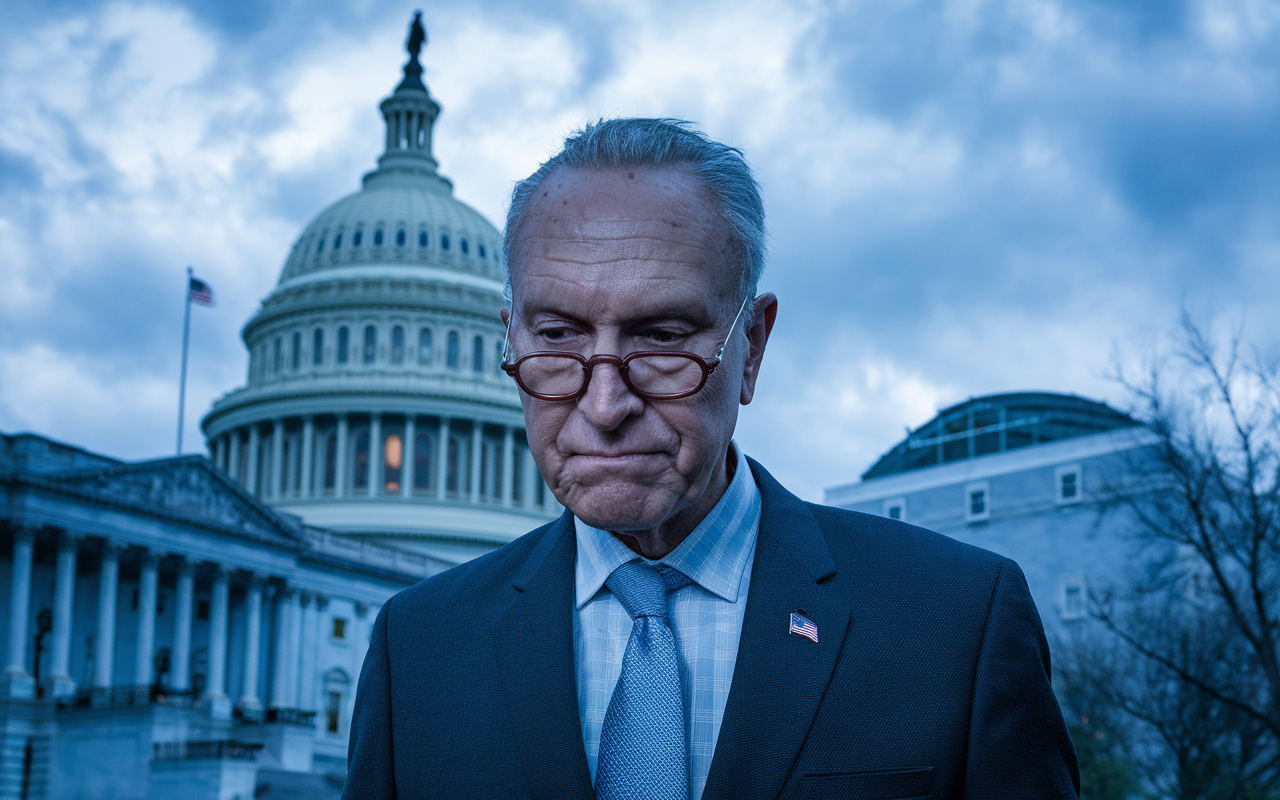Schumer Stands Firm Amidst Criticism: A Defiant Approach to Leadership 💪🗽
Senate Minority Leader Chuck Schumer has come under fire for his recent vote supporting a Republican-backed funding bill, which has sparked significant backlash within his own party. Despite calls for his resignation, Schumer has emphatically stated, “I’m not stepping down.” This bold assertion comes during a tumultuous time in American politics, raising questions about leadership, party unity, and the path forward for Democrats.
The Controversial Vote 🗳️
Many Democrats expressed their disappointment after Schumer voted for a short-term government funding bill that not only increased defense spending but also cut $13 billion from non-defense spending. Critics have noted that this move appears to give former President Donald Trump excessive control over government funds, something that many believe undermines Democratic values.
Rep. Glenn Ivey was among the first to publicly call for Schumer's resignation, highlighting a divide within the party. He stated, “I respect Chuck Schumer… but I’m afraid that it may be time for the Senate Democrats to get a new leader.” Such sentiments echo across various factions of the Democratic Party, suggesting that frustration is boiling over. 😡
Voices Against Schumer 📢
Prominent figures from the party, like Sen. Elizabeth Warren, criticized Schumer’s actions, alleging he was “wrong” to capitulate to Trump. Meanwhile, Sen. Bernie Sanders underscored that the plight extends beyond Schumer; it speaks to deeper systemic issues within the Democratic Party that lacks grassroots support. His rally alongside Rep. Alexandria Ocasio-Cortez, which drew a crowd of around 34,000 people in Denver, signifies the growing unrest among progressives.
A Risky Political Landscape ⚠️
Schumer’s decision not only impacted his leadership but also postponed his book tour due to security concerns stemming from planned protests. Several progressive groups are now contemplating a primary challenge against him, highlighting a potential power struggle within Democratic ranks.
In defending his vote, Schumer articulated that while the resolution might not be ideal, a government shutdown would have been far worse. He expressed profound concern about the implications of a shutdown, claiming it would grant the President “sole power to determine what is, quote, ‘essential,’” without judicial oversight. This precarious balance of power drives the urgency of the current discussion.
Looking Ahead: Unity or Division? 🔮
As the political landscape continues to shift, the Democratic Party faces a pivotal moment. Schumer’s refusal to resign may embolden some, but it is equally likely to exacerbate divisions among progressive and moderate factions. If Schumer can navigate this turmoil and emerge united with his colleagues, he could strengthen his position. However, if discontent festers without resolution, this could foreshadow a dramatic reconfiguration ahead of future elections.
As we watch this situation unfold, one thing remains clear: the struggle for unity within the party is more crucial than ever. Schumer’s resolve will be tested as he balances the demands of his party’s base with the practicalities of governance in a polarized environment.
What are your thoughts on Schumer’s decisions and the future of Democratic leadership? Will we see a robust challenge from progressive candidates, or will the party coalesce around a singular vision? Let’s chat in the comments below! 👇🗣️
For more insights and updates on leadership and politics, stay tuned! 📅
#Politics #ChuckSchumer

More Stories
Exciting News: The Summer I Turned Pretty is Becoming a Movie
Reflecting on Robert Redford’s Legacy of Integrity and Artistry
Sara Rivers Appeals Dismissal of $60 Million Lawsuit Against Sean Combs: A Fight for Justice in the Entertainment Industry